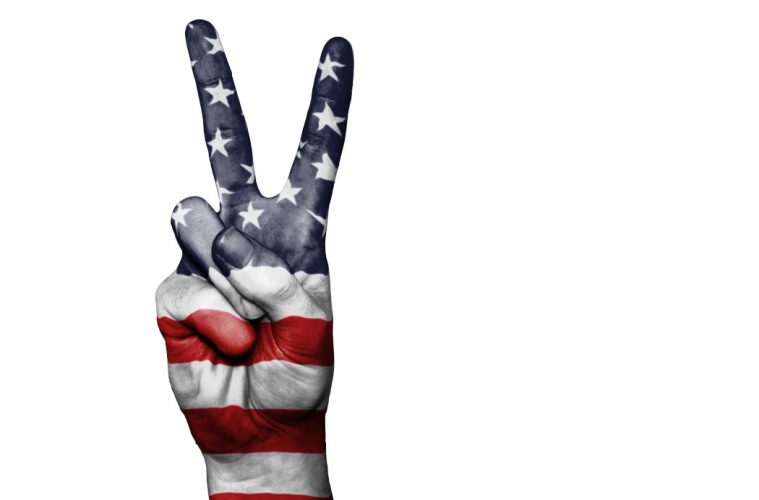We’ve had our “Made in the USA” feature for several years running now. But this year, it perhaps takes on a new meaning. Tariffs are no longer a “what if?” scenario. They are in fact here, with the U.S. Government imposing tariffs on several types of products, and with many countries returning the favor in kind by taxing U.S. goods. So, like past years, we asked a large swath of manufacturers what it means to have their products manufactured here in America. But this year, we also asked how tariffs imposed by other countries will affect their companies. The answers are definitely not something you want to miss.
Editor’s Note: Views of our responders do not necessarily reflect the views of the the Music & Sound Retailer. We take no stance on any issue discussed in this story.
The exact questions we asked this year are the following:
How important is the phrase “Made in the USA” compared to a few years ago? How proud are you to say your products are made in the USA, and do you believe the end user seeks these products as much as in the past?
In what way, if any, would tariffs enacted by other countries affect your business?
Here are the answers we received:
How important is the phrase “Made in the USA” compared to a few years ago? How proud are you to say your products are made in the USA, and do you believe the end user seeks these products as much as in the past?
The notion that a product must be made in the USA is really not an issue. Consumers seem much more accustomed to products originating from many different places around the world. However, it does come in to play depending on price point, type of product, etc. So, there are instances it is just as important say made in USA (or certain other countries) now, as it was years ago. We do believe that in higher price points and for products that are more “crafted” than “produced,” that users do expect and take comfort knowing a product is made in USA. Some consumers seek that out, some don’t. But most do expect it with certain brands and types of ‘higher-end’ products and that’s understandable. We are always proud to say made in the USA, and we will highlight that fact when a product is in fact made here at home.
In what way, if any, would tariffs enacted by other countries affect your business?
The current first wave of tariffs has barely affected most music products, but the next wave of proposed tariffs does seem to impact products made by many MI brands, and it will be a concern for many. I would expect that no company wants to raise prices due to this. So, there is a concern there. Working with NAMM, the industry should provide info to local governments during the comments period to alert officials that increases of this type affecting musical products would be harmful to the industry and do nothing positive for the country, MI companies, retailers, consumers or our industry. While we all want to support our country’s efforts to do what right for us all, this does seem to be more of a detriment than benefit to our music products efforts.
—Andy Rossi, Senior Vice President, Sales and Marketing, Korg USA
How important is the phrase “Made in the USA” compared to a few years ago? How proud are you to say your products are made in the USA, and do you believe the end user seeks these products as much as in the past?
Here at Maxonix, my products are 100-percent “Made in USA.” I’m proud to say it. However, the positive and/or negative impact needs to be discussed in light of two separate audiences/markets.
- International trade: I’ve grown my business mainly on international sales due in part to the positive image of U.S. products around the world. However, that’s really changed over the past 12 months. Opinions of U.S.-anything has taken a huge hit and swung from desirable to seriously undesirable. That’s coming from discussions with my international distributors and the decline in direct sales too.
- S. customers: Both retailers and end-user customers talk about wanting to buy U.S.-made products, but it’s really just talk. Unlike internationally, inside the U.S., “Made in USA” seems meaningless and pointless — no one really cares. When it comes down to it, they all just want whatever’s cheaper or a more well-known brand. My main gripe on this topic is with retailers who push for the cheapest option both as buyers and to their own customers. If there’s any retailer out there who encourages their customers to actually buy U.S.-made products, I haven’t heard of it.
Furthermore, I’ve talked to retailers at length about offering “Made in USA” alternatives (either the same or better quality) to several basic drum accessory products and offering them at a lower price than big-name brands, which all have their products made in Taiwan. The answer has always been “no.” So, I guess that goes beyond what I said above about people/ retailers wanting low prices. They don’t even want “Made in USA,” even if the quality is better and the price is lower. Instead, they want the big-name brands.
It’s super frustrating to hear the “USA” talk and see bumper stickers, then get zero action from the same people. I’m not alone in this and have talked to other small, struggling U.S. manufacturers.
In what way, if any, would tariffs enacted by other countries affect your business?
The topic of tariffs already has my international buyers on edge. If they’re enacted, I expect to go out of business.
—Graham Bradfield, Owner/President, Maxonix
How important is the phrase “Made in the USA” compared to a few years ago? How proud are you to say your products are made in the USA, and do you believe the end user seeks these products as much as in the past?
Our customers, both trade and consumer, feel that phrase is important and is a definite selling edge for us to have it on our packaging; and we do. Not necessarily for the distorted and hateful “political reasons” we witness daily, but as an assurance of quality and the belief that economic success for citizens and country, like charity, must begin at home.
In what way, if any, would tariffs enacted by other countries affect your business?
The administration has decided to ignore basic economic principles regarding international trade and instead has arbitrarily picked domestic winners and losers. Its ill-conceived tariff program, when announced months ago for steel, for example, caused my fabricator of steel parts to immediately increase his price to us by 30 percent, even before the tariff went into effect. For now, we must eat that loss of margin, but at some point, we will increase our prices. In the meantime, we hope our fabricator stays in business.
—Richard Aquino, President, SA Richards
How important is the phrase “Made in the USA” compared to a few years ago? How proud are you to say your products are made in the USA, and do you believe the end user seeks these products as much as in the past?
As the world’s market has become more global, it’s an undeniable fact that some products made overseas are of excellent quality, and today’s consumers are aware of this fact. That being said, truly knowledgeable consumers also realize that a large percentage of foreign-made products that carry attractively low-price tags also come with correspondingly low levels of performance and construction quality. Bottom line: The quality level of products made overseas can vary widely.
Meanwhile, products “Made in the USA” can be relied upon for a consistent level of quality — as proven over many generations. Hence, the phrase “Made in the USA” still offers consumers an important advantage. Gretsch has been making drums and other instruments in the USA for 135 years. We were proud to say it in 1883, and we’re even more proud to say it today. The Gretsch legacy is unrivaled in today’s drum manufacturing market.
[As for if I believe the end user seeks these products as much as in the past], frankly, that’s hard to say in a general sense. Again, the musical instrument industry is far more global today than a generation ago. However, speaking specifically of Gretsch, our brand is enjoying significant demand, which indicates that end users are seeking our products as much as in the past.
In what way, if any, would tariffs enacted by other countries affect your business?
Tariffs enacted by other countries on finished goods — including drums, guitars and other instruments — would affect our business, as it would that of all other American instrument manufacturers. They would make our instruments more expensive in foreign markets — which, in turn, would likely reduce sales in those markets. Possibly more worrisome are tariffs enacted by our own country — especially on steel and other materials from foreign sources. These could increase our cost for those materials, thus increasing our manufacturing costs and ultimately the sale price of our products.
—Fred W. Gretsch, Gretsch
How important is the phrase “Made in the USA” compared to a few years ago? How proud are you to say your products are made in the USA, and do you believe the end user seeks these products as much as in the past?
Made in the USA is one of the most important selling points that sets Deering apart from our competition, particularly at the entry level. There are most definitely lower-priced banjos available, and they are all made overseas. However, when you consider the quality and the knowledge, the small price difference makes sense to most people. They can see (and hear) where that money goes. We are extremely proud to be able to say that we make our products in the U.S., and this is something that a lot of our customers enjoy, too. An American instrument, made in America. Nothing else will do!
I think as far as the rest of the world, the same rings true, but on a different plane. Less of a patriotic sense, but more so from the standpoint of quality. I spent half of my MI career in the UK and Europe, and American-made musical instruments really meant something. An American Strat was always more desirable than a MIM equivalent. It was something to aspire to in your musical journey.
And I think that it still does. The difference with Deering is that everything we make, including the entry-level Goodtime line, is made in our factory in San Diego.
In what way, if any, would tariffs enacted by other countries affect your business?
In many ways, it is too early to tell. Obviously, any tariffs that result in an increased cost for the dealer or consumer in that country is not always a good thing. At the same time, it is the ever-changing landscape of international trade that forces companies to be constantly looking at how they operate outside of their borders. We are no exception, and we will be examining how we operate in these regions very closely to see how we can maintain value for our customer.
—Jamie Latty, Vice President of Sales & Marketing, Deering Banjo Co.
How important is the phrase “Made in the USA” compared to a few years ago? How proud are you to say your products are made in the USA, and do you believe the end user seeks these products as much as in the past?
“Made in the USA” is something that Peavey has been proud to put on many of its products for 53 years. We’ve made more products in the U.S., and for a longer period of time, than anyone in the industry. We made continual efforts to improve our operations, implementing LEAN manufacturing processes and investing in better machinery, but it was not easy to sustain U.S. manufacturing after 2008. We make less than we once did in the U.S. but still strive to maintain a U.S. manufacturing footprint. Highly crafted products, like our Composite Acoustic guitars or Elements speaker line, are best made in the USA given the attention and craftmanship required.
I think there are still many people who want to buy a product that is made in the USA, and we have certainly heard more rhetoric about bringing manufacturing back from overseas. However, music and sound products in general don’t typically command Made in the USA. There will always be people that claim they have been disappointed with Chinese this or that and want to stick with U.S. made, but that’s a minority. The market is so competitive, and customers who are ready and willing to pay more for a product made in the U.S. are few and far between. There are a few, but less than people want to admit. There has been erosion to U.S. manufacturing for decades, and finding skilled workers who want to work in a manufacturing environment is not easy.
In what way, if any, would tariffs enacted by other countries affect your business?
Our business has been impacted by other countries’ tariffs for decades. There are many countries applying very high tariffs to U.S. goods in order to protect or develop their own markets. This just makes our goods more expensive than their domestic manufacturers. Fortunately, they are still desired.
—Courtland Gray, Chief Operating Officer, Peavey
How important is the phrase “Made in the USA” compared to a few years ago? How proud are you to say your products are made in the USA, and do you believe the end user seeks these products as much as in the past?
In what way, if any, would tariffs enacted by other countries affect your business?
Politics aside, the desire of Americans to have a strong economy with a strong manufacturing base is still strong. The resurgence of manufacturing jobs in the U.S. in the last year is due in part to tax revisions, which have helped trigger investments in new and upgraded manufacturing facilities in almost every state, as the newspaper headlines and press releases have announced. These investments will significantly increase manufacturing output in the U.S. in the months and years to come. And the pride of buying American-made products is still strong, stemming from the knowledge that American workers are benefitting from these domestic purchases. But buying American-made products becomes less important when the cost of U.S. products is significantly higher than imported goods.
As a company that proudly makes its music stand products in the U.S., we are delighted when we hear from our customers and consumers how pleased they are to be able to buy these products from a U.S. manufacturer. And the fact that Manhasset Stands are Made in the USA is important in our export business. There is a perception of high quality coming from products that are made in the USA in most of the countries around the world and Manhasset is proud that the quality of its music stand products help to expand this perception, based on the quality of the products we ship. Manhasset also understands the need to keep its products competitively priced to retain market leadership. The company has been investing heavily over the last few years to keep increasing its productivity and continuously working to improve the product quality and to stay highly competitive in the marketplace.
Tariffs and import restrictions have created numerous problems for manufacturers like Manhasset, who source raw materials from U.S. suppliers. When domestic mills had the opportunity to dramatically increase their prices as a result of import restrictions and new tariffs from their competitors in other countries, they seized it. While trade agreements and tariff conversations are underway with many U.S. trading partners, a fix is needed quickly so U.S. manufacturers can continue to produce their goods profitably without having to pass on large price increases.
—Dan Roberts, President and General Manager, Manhasset Specialty Co.
How important is the phrase “Made in the USA” compared to a few years ago? How proud are you to say your products are made in the USA and do you believe the end user seeks these products as much as in the past?
We are extremely proud of the fact that 95 percent of our products are “Made in the USA.” We are truly committed to making as much of our product line in America, with American materials, as possible. I believe there is a core of Americans that Made in USA means something to, but unfortunately they may be not be the majority. Younger generations may be more inclined to align with a brand because of its products’ design, price, and the company’s authenticity and creativity. Much like music fans are not as loyal bands or artists today as in the past, keeping your customers loyal requires more than just one element of differentiation like “Made in USA.”
We are constantly looking for ways to make more and more of our products right here in the USA. The unfortunate reality is that sometimes we just cannot source a material or assembly at the required quality or cost in America, and we are forced to consider off-shore sources. One example is the high-carbon-steel rod we draw down to plain steel and hex core sizes for music strings. Because there is no viable source in America that makes this alloy at the highest quality level our supplier is compelled to import this specialty steel from places like Kobe, Japan, where they make a superior quality raw material. If there was a comparable American vendor, you can be sure we would use them.
Look at these facts:
- The 25-percent steel tariff just raised the cost of all the steel we use for our steel music strings (more than 40,000 pounds per month) by 25 percent. That means we have to include that increase in our product costing. Half of our strings are sold in export markets.
- Foreign string makers have access to the same raw materials, without a 25-percent tariff. Suddenly our string products will cost more than our foreign competitors.
- Yet we still let foreign string makers ship their products into America with no tariff. This is not a level playing field. Even the EU. They charge 2.7-percent tariff on our strings going into Europe, but they can ship them into the USA tariff free?
It is pretty easy to see how this will play out over time.
In what way, if any, would tariffs enacted by other countries affect your business?
I just explained above the new USA tariffs are making our “Made in USA” products more expensive. Now the few things we do import like tuners and power suppliers, for instance, are subject to a 25-percent tariff coming into America. Again, we will not be competitive against foreign companies making the same products say in China because they will not have the tariff we have to deal with. End result, our tuners will cost more in foreign markets than some of competitors. Sales will decline.
We need more open access to the foreign markets. There is a decidedly unfair balance between the tariffs being charged by the USA on imported finished products, but placing arbitrary tariffs on some items is not the solution. Recently China reduced the tariffs on musical instruments to 10 percent. However, they did not reduce them on musical instrument accessories. So, our products going into china are still being taxed at a very high rate, yet they can ship many of the same products into the USA duty-free.
I only wish our government would consider a unilateral, reciprocal tariff policy. Why don’t we just charge any foreign country the same tariffs they are charging us on the comparable products? If they lower them, we lower them. If they raise them, we raise them.
I can assure you if that was enacted our business would grow rapidly. We would be able make more products here in the USA competitively, and we would see some markets with heavy tariffs on our USA-made products already grow significantly. We are capable of winning more market share in more markets if the rules to the game were the same for us and our trading partners.
Random, emotional or vindictive actions like we are seeing, is not a solution that will have a long-term positive effect. There are too many unexpected consequences to the type of actions we are seeing our country and trading partners taking that are not being considered, that in the end may have disastrous results.
We are very nervous about this trade war. It is consuming management resources just to identify the issues and then to determine what actions we may be able to take to overcome them. It is a distraction from creating great new products to solve musicians’ problems and the philanthropy we prefer to be working on.
—Jim D’Addario, CEO, D’Addario








